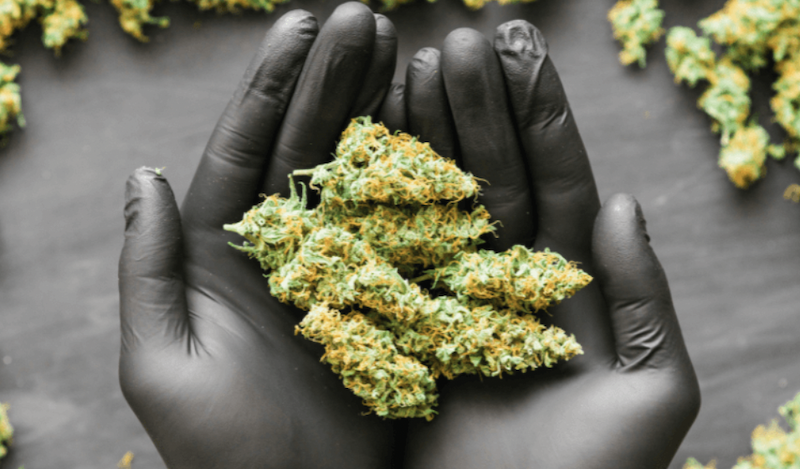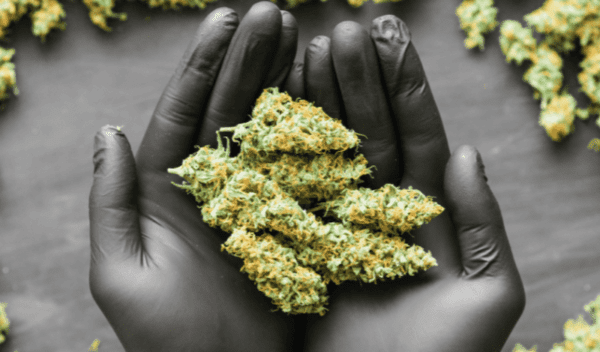
The cannabis and Hemp sectors have experienced significant changes in the last couple of years due to a change of law and general public perception, and growing consumer interest. Among myriad chemical constituents present in cannabis, THCA is newly emerging in spotlight because of potential therapeutic effects without the effects associated with THC. But to determine that THCA is legal, it is vital to look into certain laws depending on the area where the user lives. This article categorizes and analyzes the legal perspective on THCA flowers for the benefit of the consumers in order to avoid making hasty decisions.
Understanding THCA Flower
To first get a concept of what THCA flower is, it essential to subordinate legalities essential before focusing on its specifics. THCA is the inactive cousin of THC found in raw marijuana and is essentially THC’s raw material. However, heat, specifically a process called decarboxylation, turns THCA into THC which is the main element that commonly comes hand in hand with cannabis.
Many consumers are enticed by THCA flower because of its reported benefits. However, THCA is somewhat contentious in its legal sense depending on federal and, or state or locality laws and regulations when it comes to cannabis.
Federal vs. State Law: The Legal Landscape
Federal Law
In 2018, however, the passing of the Farm Bill rendered only those products from hemp plants containing not more than 0.3% of the THC compound on a dry weight basis legal at the federal level. THCA on its own does not induce any effects but, given its relation to THC was enough to create legal questions. Despite its current legal status, THCA remains in a legal grey area due to the DEA placing THCA as a schedule 1 substance because of its ability to be converted into THC.

In general if the source is hemp and the THCA contains more than 0.3% of THC it is considered federally legal. Nonetheless, confusion arises from federal bodies pertaining to the application of such laws making it hard to determine the legal status of THCA.
State Law
THCA flower laws are less standardized across the states as there is even more disparity. Some states have adopted hemp derived products and have set laws concerning the use of THCA while others have banned or have not set the laws regulating THCA yet.
- States Permitting THCA Flower: Some states clearly regulate THCA flower under hemp programs which means most states can provide a wide range of access to the same.
- States with Restrictions: Other states, especially those with strict social norms concerning the use of marijuana, allow THCA products but with very strict policies in place or else, they fully prohibited.
Consumers too need to confirm the extent to which their states uphold the THCA. Buying THCA flower in a restricted state can be legal consequences.
Ensuring Quality and Safety
Because the laws governing THCA are quite elaborate, those in the market for THCA products should be very keen on the quality and safety standards of the products. Here are some key factors to consider:
- Third-Party Testing: It is recommended popular and respected brands have third-party lab reports better known as certificates of analysis (COAs) that indicate product’s THC levels and legalities.
- Organic and Ethical Sourcing: Deciding on products from organic growers is also useful to necessitate the flower does not have any pesticides or even other chemical particles.
Therefore awareness of these factors can go along way to enhancing the safety and efficacy of the chosen THCA product.
Consumer Rights and Protections
When it comes to consumers’ rights, they are existent although with possibility to be fully limited according to the legislation of some states. Generally, consumers should have access to:
- Clear Labeling: Consumers should be able to find THF content, origin of the product or extraction and quality analysis details on the products.
- Protection Against Fraud: If a product doesn’t meet advertised standards, consumers can often file complaints with state regulatory bodies.
Note on International Laws
The use of THCA is also legal not only in the United States but also in the whole world where countries develop their own laws regarding cannabis and products based on hemp. When considering transporting any of these products to another country, it will be safe to check each country law on the ban of these products since some countries consider these legal in the U.S as prohibited with heavy penalties.
Best Practices for Buying THCA Flower
To safely and effectively navigate THCA’s legal landscape, consumers should adopt a few best practices:
- Research Local Regulations: Start by understanding your state’s laws regarding THCA products.
- Ask Questions: Contact the manufacturers and/or retailers to check on the laws on their region to address their concerns or to know more on the quality of their products.
- Check Brand Reputation: Product reviews and feedback can always be read on brands and products in order to assess their reliability.
- Stay Informed: As for THCA and cannabis regulative industries, it is now and will always be vital to stay current.
Final Word
Navigating THCA Flower’s legal landscape requires consumer awareness and a proactive approach. Despite the fact that THCA holds great promise, issues of federal and state laws may create dangerous consequences when used inappropriately and legally. Although THCA’s products have some relatively strong effects threatening consumers and violating some legal limits, consumers can find out what products deserve their attention and what products are potentially harmless if they focus on research and stop their choice on reliable products.

